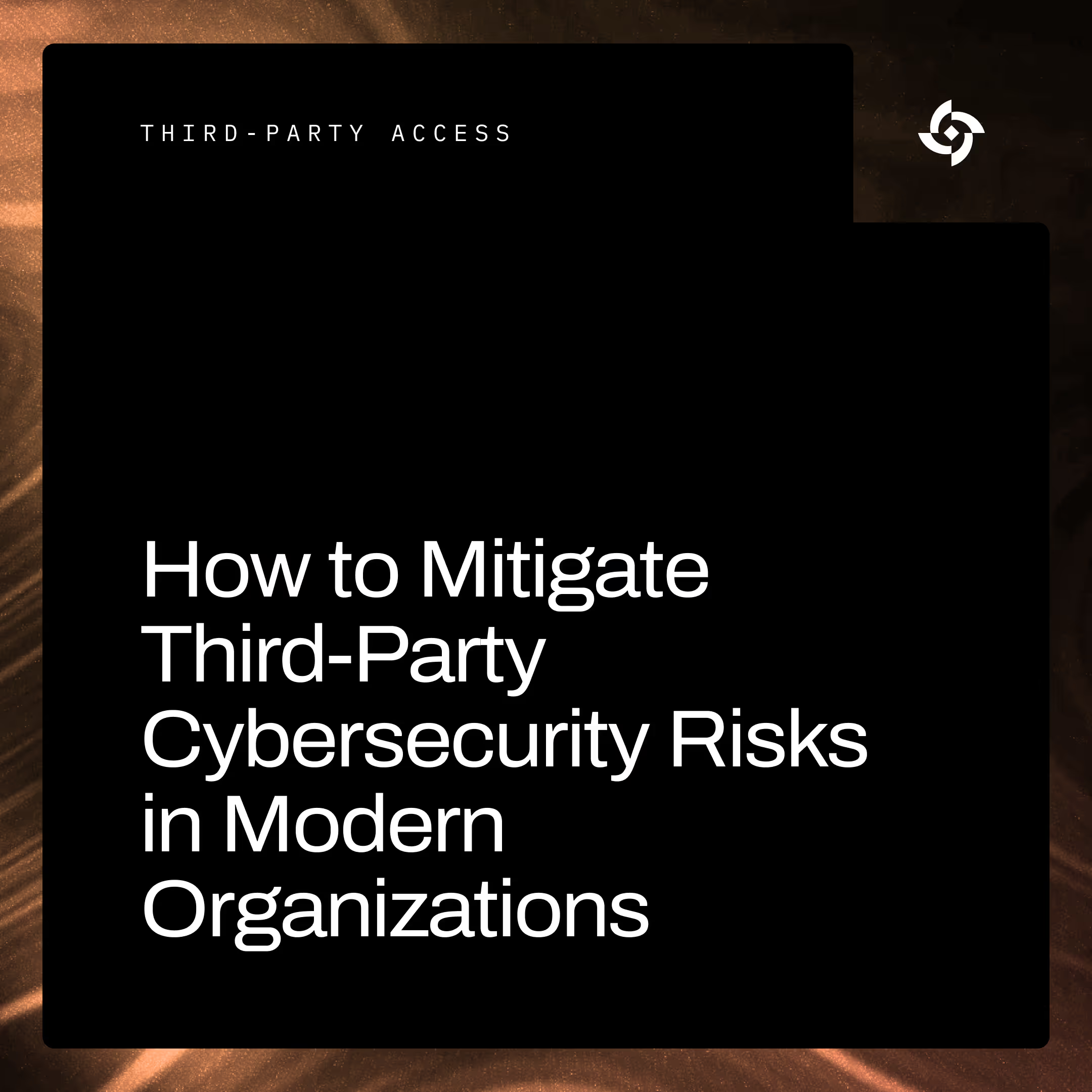Nowadays, it is difficult to imagine an organization that does not use the services of third-party vendors. In almost every aspect of our daily business, we can cooperate with subcontractors, from cleaning to accounting, HR, and IT administration, to more specialized services such as design and programming. But the more complex the service, the more resources we have to share with a third party, and the greater the risk we incur.
Who are the third parties in a business?
Third parties in business refer to individuals or organizations outside of a company’s internal operations who are involved in some way with the company’s activities or transactions. These can include suppliers, customers, distributors, partners, contractors, consultants, regulatory agencies, and other stakeholders who have a relationship with the company but are not directly employed by it. Some of the listed examples need remote access to the company’s servers, databases, web applications, or network devices to effectively cooperate with your business. In the case of complex services provided by vendors, even privileged access is needed for the processing of sensitive data.
What are some examples of third parties that need privileged access?
Modern organizations cooperate with vendors on many levels. Below you will find some selected examples of vendors’ services that require privileged access to a company’s assets:
- Technology vendors, IT vendors and system integrators – companies that provide and support technological solutions and services for our business.
- External IT administrators – they are responsible for managing the organization’s computer network, IT systems, data backups, and IT security.
- Contractors – short- or long-term contractors employed as programmers, building designers, etc. that require access to a company’s trade secrets.
- Bookkeepers or financial auditors – responsible for managing or auditing an organization’s finances and budget.
- Lawyers – they are usually needed to consult contracts or big purchase decisions.
- Consultants – specialists in specific fields that are needed for the continuous development of your business.
- Marketing and advertising – this group can have access to trade secrets related to innovative product launches.
What is an example of a third-party risk?
Hiring third parties may involve financial, reputational, operational, and, most importantly, cybersecurity risks to the company. Your company’s sensitive information can become vulnerable, and you may be exposed to fraud. Cybersecurity risks that can arise from using third-party services can be intentional or unintentional. We can identify three cases:
- Insider threats – a third-party contractor or vendor may intentionally or unintentionally compromise the security of the company’s data or systems, either through negligence or malicious intent.
- Weak security controls – third-party vendors or contractors may have weaker security controls in place than the company itself, making them more vulnerable to cyberattacks.
- Data breaches – if a third-party vendor or contractor experiences a data breach, it can expose the company’s sensitive data, putting it at risk of theft or misuse.
To mitigate these risks, it is important for companies to conduct thorough research on third-party organizations before entering into a business relationship with them. But this will not ensure that approved vendors will maintain their security behaviors at the required level. In this situation, companies should regularly monitor their third parties for any signs of suspicious activity or breaches and have a plan in place to respond to any incidents that may occur.
How to monitor third-party contractors?
As you have read in the previous paragraph, the risks that come with cooperation with third parties can carry large consequences for a company’s cybersecurity. This is why prevention and monitoring are so important. So the question is: “How to monitor external employees?” Just check out the Fudo Security product portfolio. There you will find Privileged Access Management (PAM) solutions for both small businesses and large enterprises. PAM will help you secure, monitor, and audit third parties.
To mitigate insider threats, you have to be equipped with a cutting-edge set of privileged session management tools. They allow organizations to record and audit privileged sessions, which helps in detecting and investigating any suspicious activity. Fudo One and Fudo Enterprise provide additional real-time interaction during user sessions, allowing administrators to join, share, pause, or terminate any potentially suspicious session immediately after any dangerous behavior is spotted. This approach is mainly aimed at insider threats, which are becoming more and more common. Thanks to the mentioned features, all authorized users’ activity is constantly monitored and recorded, so malicious actions can be easily tracked and blocked.
Fudo Enterprise can help you deal with weak security controls of your third-party employees with its password management feature. It enforces strong password policies for privileged accounts to ensure that passwords are unique, complex, and changed regularly to prevent unauthorized access. This is important in these days when stolen or compromised credentials are one of the most common initial attack vectors for data breaches.
The main key features of our PAM solutions, that can mitigate data breaches, are access control tools. Fudo One and Fudo Enterprise ensure that only authorized users can access privileged accounts and data. According to the Zero Trust approach, these solutions guarantee that users have access to specific applications and accounts only when needed and for a specific reason. Administrators can define and schedule the availability of resources to users and control them accordingly.
On top of that, Fudo Enterprise also offers the Efficiency Analyzer feature, which can be useful when using third-party services. It is designed to represent productivity analysis by tracking users’ activities and providing precise information on efficiency, idle times, or all improper work practices based on detailed metrics.
Business continuity without third-party involvement is becoming more and more difficult, so all we can do is be aware of the risks posed by such cooperation and counter them accordingly. With the use of Privileged Access Management (PAM) solutions, companies can mitigate these threats and protect their sensitive data and critical systems. By implementing Fudo solutions that provide access controls, monitoring and recording privileged users’ activity, and privileged access workflow automation, organizations can ensure that third-party vendors have only the access they need to perform their tasks. This approach reduces the risk of data breaches and cyberattacks caused by third parties and makes cooperation with them more secure and convenient.

.avif)
.avif)
.avif)

















